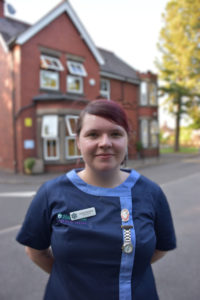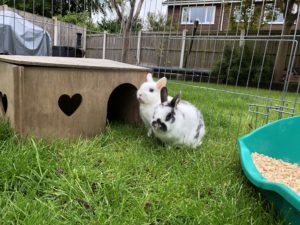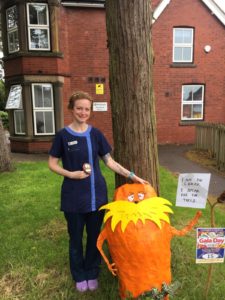Vet Nurse Awareness month is officially over but we wanted to share the story of one of our other nurses, Leonie, who is deputy head nurse at Hollybank
I started my Veterinary Nursing journey in school where I underwent a week of work experience in a veterinary practice gaining an insight into the role of a veterinary nurse. From there I decided it was the career I wanted to pursue and so I enrolled in college to study level 3 animal management. This allowed me to gain the qualifications needed to study a degree in veterinary nursing at university. I completed 3 years of studying at Myerscough College to become a qualified registered veterinary nurse.
I started my first job as a qualified veterinary nurse at Hollybank where I am now deputy head nurse. Whilst at Hollybank I have gained a vet nurse merit award in physiotherapy and rehabilitation which is an area of veterinary nursing I am particularly interested in. I have also become a clinical coach to help train student veterinary nurses. I enjoy helping them with their nursing progress log, preparing them for OSCE exams and seeing them grow into excellent registered veterinary nurses.



